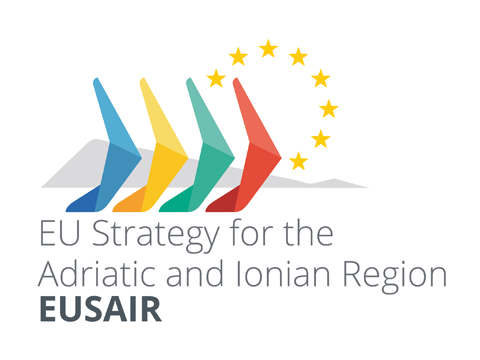The report “EUSAIR facilitating the enlargement process of the Western Balkans” examines the complementarities between the EU Strategy for the Adriatic and Ionian macro-region (EUSAIR) and the enlargement process to the Western Balkan countries participating in the EUSAIR.
Report “EUSAIR facilitating the enlargement process of the Western Balkans” is published!
- 14 June 2021

The report has been written by OBC Transeuropa and CeSPI and been issued by the European Commission.
Compared to the other three Macro-Regional Strategies (MRS), the EUSAIR has a distinct aspect. Five out of the nine participating countries are candidate/potential candidate countries for EU membership, explaining why the EUSAIR widely acknowledges the centrality of the enlargement process for its actions. North Macedonia is the youngest member having joined EUSAIR in 2020 demonstrating its attractiveness for Western Balkan (WB) countries aspiring EU membership.
The connection between the EUSAIR and the EU enlargement process has been highlighted since the adoption of the EUSAIR in 2014 in its Action Plan and Communication and has been consistently mentioned in all EUSAIR Ministerial Declarations. The Commission, in its Third report on the implementation of EU macro-regional strategies , reiterated that “closer synergies with the enlargement process are key to supporting the EU perspective for the WB, in line with the EU priorities A stronger Europe in the world and the New enlargement methodology.
The report shows that the EUSAIR presents a number of assets in support of the enlargement process, such as:
- a horizontal cooperation that allows greater ownership of the processes by the beneficiary countries;
- a regional dimension that connects the WB to the EU, fostering a regional sense of identity that goes beyond the WB as well as a Europeanisation process;
- a convergence of interests on enlargement, which is a priority topic across the four EU Member States that participate in the strategy;
- a capacity-building approach, based on cooperation in different fields and at different levels, which enables the relaunch of enlargement out of traditional logics and narratives;
- an emphasis on territorial cooperation that stimulates positive dynamics between local authorities, the private sector, and other relevant stakeholders at the local, national, and transnational level;
- an inclusive approach that empowers stakeholders as active participants in the macro-region.
Thus, the report discusses how the EUSAIR can contribute to the enlargement process focusing on four main aspects:
Finally, the paper makes a number of policy recommendations to support the integration process of the five Western Balkan countries participating in the EUSAIR.
The EUSAIR, launched in October 2014, covers a macro-region of more than 70 million people in four Member States (Croatia, Greece, Italy, Slovenia) and five countries of the Western Balkans (Albania, Bosnia and Herzegovina, Montenegro, North Macedonia and Serbia) cooperating on equal footing to overcome common challenges in four pillars: Blue Growth, Connecting the Region (Transport and Energy), Environmental Quality and Sustainable Tourism.
